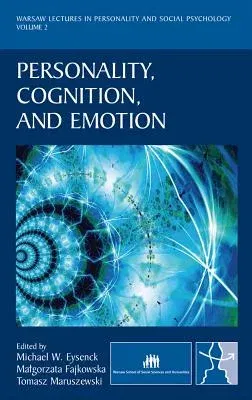These are intellectually exciting times in the fields of personality,
cognition, and emotion, with rapid progress being achieved at both
theoretical and empirical levels. There are now sufficient findings to
provide the basis for integrative theories within these disciplines. In
Volume 2 of the series, the editors and contributors examine the
interactive influences of personality, cognition, and emotion in order
to attain a comprehensive understanding of human behavior. Chapters in
Part I focus on the relevance to emotion and cognition of individual
differences in trait anxiety, emotional intelligence, aging, agentic
traits, and communal traits. By contrast, Part II is concerned with
emotions and with the relationships between emotional states and various
aspects of individual differences and cognitive processes: What factors
determine the nature and intensity of emotional experience? How is an
individual's behavior changed as a result of being in a given emotional
state? The concluding chapter, with over one hundred references,
presents an integration of the research areas discussed in the book and
provides an excellent theoretical framework that will prove invaluable
for further research and theory. "After perusing the chapters included
in Volume 2 . . . I am firmly convinced that researchers and students
interested in personality and social psychology will find this book both
challenging and exciting. My congratulations to all those who
contributed in different ways to this significant work." From the
Foreword by Jan Strelau, Pro-Rector for Research Warsaw School of Social
Sciences and Humanities From a review "[S]ets the bar very high in
seeking to integrate domains that are divergent, not only in terms of
their content . . . but also in terms of their preferred methodologies,
which frequently appear to be antithetical . . . . Although the lofty
aim of integration is ultimately unrealized, at the end of the book the
reader is left with a newfound impression that it is, quite possibly,
realizable." K. V. Petrides in Personality and Individual Differences

